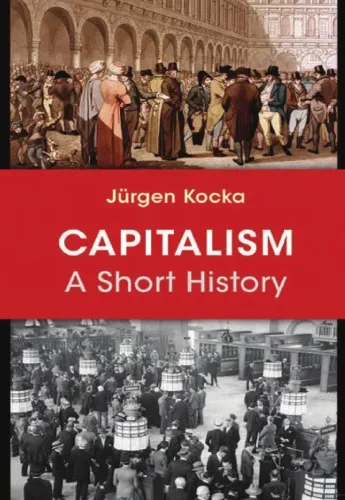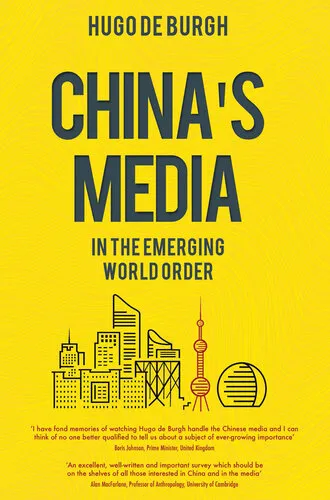Capitalism: A Short History
4.9
Reviews from our users

You Can Ask your questions from this book's AI after Login
Each download or ask from book AI costs 2 points. To earn more free points, please visit the Points Guide Page and complete some valuable actions.Related Refrences:
Introduction
"Capitalism: A Short History" is a compelling and succinct exploration of capitalism's transformative journey through centuries. This book takes readers on a historical narrative, unpacking how capitalism evolved, influenced societies, and encountered challenges that shaped its current form. Rich in context yet concise, it serves as an essential primer for anyone eager to understand the profound impact of capitalism on global economies, cultures, and the world's socio-political dynamics.
Detailed Summary of the Book
The book delves deep into capitalism's history, tracing its roots back to medieval Europe. It begins with the gradual shift from feudal systems to more market-oriented economies, driven by the desire for profit and growth. Emphasizing the pivotal moments in history, it chronicles the expansion of trade, the rise of industrial powers, and the influence of colonialism and imperialism in spreading capitalist ideals.
As the narrative progresses, the book examines the revolutionary changes brought about by the Industrial Revolution, highlighting how technological advancements catalyzed economic transformations and altered labor landscapes. It also explores the intricate relationship between capitalism and democracy, discussing how political ideologies and economic structures have frequently intertwined and influenced each other.
Further, the book sheds light on the complexities and contradictions inherent in capitalism, including the challenges of inequality, the crises of overproduction, and the environmental concerns that urgently demand solutions today. The narrative concludes by contemplating the future of capitalism amidst globalization, digital transformations, and the increasing calls for sustainability and reform.
Key Takeaways
- Capitalism has roots in medieval Europe and has evolved through transformative historical epochs.
- Technological advancements and industrial revolutions have played crucial roles in shaping capitalist economies.
- The relationship between capitalism and democracy is complex and deeply interwoven.
- Capitalism has brought about immense economic growth, but also significant social and environmental challenges.
- Globalization and digital transformations are redefining the future landscape of capitalism.
Famous Quotes from the Book
"The heart of capitalism lies in the dynamic process of value creation, in the use of capital to generate profit and reinvest it to fuel further growth."
"While capitalism has proved to be an engine of prosperity, it is also fraught with cycles of boom and bust, demanding resilience and reinvention from its participants."
Why This Book Matters
"Capitalism: A Short History" stands out as an essential work for its ability to distill complex economic phenomena into an accessible and engaging narrative. It matters because it provides readers with a nuanced understanding of how capitalism has shaped—and continues to shape—the modern world. It invites reflection on critical issues like inequality, environmental sustainability, and the role of innovation and regulation in ensuring equitable growth.
For students, educators, policymakers, and anyone interested in economic history and theory, this book offers foundational insights that foster a deeper comprehension of capitalism's enduring impact. In an era where socio-economic systems are increasingly under scrutiny, this narrative lays the groundwork for informed discussions about reforms and future trajectories of global economies.
Free Direct Download
You Can Download this book after Login
Accessing books through legal platforms and public libraries not only supports the rights of authors and publishers but also contributes to the sustainability of reading culture. Before downloading, please take a moment to consider these options.
Find this book on other platforms:
WorldCat helps you find books in libraries worldwide.
See ratings, reviews, and discussions on Goodreads.
Find and buy rare or used books on AbeBooks.
1389
بازدید4.9
امتیاز0
نظر98%
رضایتReviews:
4.9
Based on 0 users review
Questions & Answers
Ask questions about this book or help others by answering
No questions yet. Be the first to ask!














